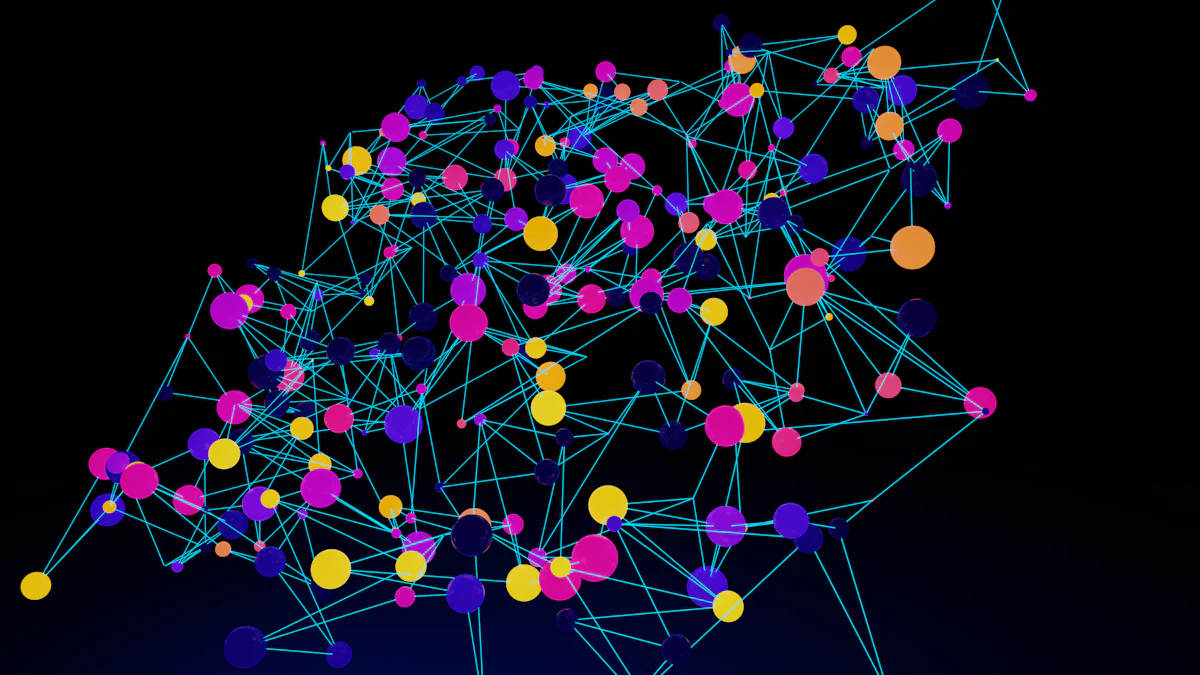Exploring the Role of Generative AI in Shaping Online Communities

Generative AI is changing the way you interact with online communities. This technology, which includes tools like ChatGPT, has rapidly gained popularity, reaching millions of users in no time. You might notice how it transforms interactions and content creation, making online spaces more dynamic. However, understanding its influence is crucial. Generative AI can impact user participation and contributions, sometimes negatively. As cities explore its potential for civic engagement, it's essential to grasp how this technology shapes your digital experiences and the communities you belong to.
Understanding Generative AI
Definition and Capabilities
What is Generative AI?
Generative AI refers to a type of artificial intelligence that can create new content. It doesn't just analyze data; it generates text, images, music, and more. You might have encountered tools like ChatGPT, which use large language models to produce human-like text. These models learn from vast amounts of data, allowing them to mimic human conversation and creativity. Generative AI is not just about replicating existing content; it creates something new, often surprising and innovative.
Key capabilities and technologies
Generative AI boasts several impressive capabilities. It can write essays, compose music, and even generate art. You can use it to brainstorm ideas or draft content quickly. The technology behind it includes neural networks and machine learning algorithms. These systems process and learn from data, enabling them to generate content that feels authentic and engaging. As you explore these tools, you'll notice their ability to adapt and improve over time, making them increasingly valuable in various fields.
Historical Context
Evolution of AI in online spaces
AI has come a long way in online spaces. Initially, it focused on simple tasks like sorting emails or recommending products. Over time, AI evolved to handle more complex interactions. You might remember chatbots that could answer basic questions. Now, with generative AI, these interactions have become richer and more nuanced. This evolution reflects the growing sophistication of AI technologies and their integration into everyday online experiences.
Milestones in generative AI development
Generative AI has reached several key milestones. The release of OpenAI's GPT models marked a significant leap forward. These models demonstrated the potential of AI to generate coherent and contextually relevant text. You might have seen how these advancements have influenced online communities, transforming how users interact and share information. As generative AI continues to develop, it promises to reshape digital landscapes, offering new possibilities for creativity and communication.
Impact on Online Communities

Positive Contributions
Enhancing creativity and content creation
Generative AI opens up new avenues for creativity. You can use it to create art, write stories, or even compose music. Imagine having a tool that helps you brainstorm ideas or draft content quickly. This technology empowers you to explore your creative side without the usual constraints. For instance, in cities, generative AI enables community members to generate and manipulate images based on textual prompts. This capability facilitates idea generation and modification for urban spaces, making it easier for you to contribute to community projects.
Facilitating community engagement and interaction
Generative AI also plays a significant role in enhancing community engagement. It allows you to interact with others in more meaningful ways. By using AI-driven platforms, you can participate in discussions, share ideas, and collaborate on projects. These platforms often use AI to tailor content to your interests, making interactions more relevant and engaging. As a result, you feel more connected to your community and motivated to participate actively.
Challenges and Concerns
Ethical implications and biases
While generative AI offers many benefits, it also raises ethical concerns. You need to be aware of potential biases in AI-generated content. These biases can stem from the data used to train AI models, which may not always represent diverse perspectives. It's crucial for you to question the fairness and inclusivity of AI tools. By doing so, you help ensure that AI serves everyone equitably and doesn't perpetuate existing inequalities.
Misinformation and content authenticity
Another challenge is the risk of misinformation. AI can generate content that appears authentic but may not be accurate. You must remain vigilant and critically evaluate the information you encounter online. This scrutiny is especially important as AI tools become more sophisticated. By fostering a culture of critical thinking, you contribute to maintaining the integrity of online communities and ensuring that they remain trustworthy spaces for interaction and learning.
Case Studies and Real-World Examples
Successful Implementations
Examples of Generative AI in Community Building
Generative AI has made a splash in community building. You might have seen platforms using AI to foster creativity and collaboration. For instance, some online forums use AI to generate discussion topics, sparking conversations among members. This approach not only keeps the community engaged but also encourages diverse perspectives. AI can also help in organizing virtual events, making it easier for you to connect with others who share your interests.
Case Studies of AI-Driven Platforms
Several platforms have successfully integrated generative AI to enhance user experience. Take, for example, a social media site that uses AI to personalize content feeds. By analyzing your preferences, the AI suggests posts and articles that align with your interests. This personalization keeps you engaged and encourages you to participate more actively. Another example is an educational platform that uses AI to generate practice questions tailored to your learning pace. These AI-driven platforms demonstrate how technology can create more interactive and personalized online communities.
Lessons Learned
Insights from Failed Implementations
Not all AI implementations have been successful. Some platforms faced challenges when AI replaced peer-to-peer collaboration. This shift led to a decline in the depth and accuracy of content. You might have noticed that when AI-generated content dominates, the quality of contributions can suffer. Users may feel less motivated to participate, impacting the overall social interaction within the community. These experiences highlight the importance of balancing AI with human input.
Strategies for Overcoming Challenges
To address these challenges, platforms need to adopt strategies that prioritize human interaction. Encouraging user feedback can help refine AI tools, ensuring they complement rather than replace human contributions. You can play a role by actively participating and sharing your insights. Additionally, platforms should focus on transparency, making it clear how AI influences content and interactions. By fostering a collaborative environment, communities can harness the benefits of AI while maintaining the richness of human connections.
Future Prospects and Recommendations
Balancing AI and Human Interaction
Importance of human oversight
You play a crucial role in ensuring that generative AI remains a tool for good. Human oversight is essential. It helps validate AI outputs, mitigate errors, and build trust. When you oversee AI systems, you ensure they respect autonomy and protect privacy. This oversight is not just about catching mistakes. It's about making sure AI aligns with ethical principles and human rights. By staying involved, you help AI systems assist humans in making informed decisions.
Developing ethical AI policies
Creating ethical AI policies is another step you can take. These policies guide how AI should be used responsibly. They ensure AI respects privacy and confidentiality. You can advocate for transparency in AI processes. This transparency helps you understand how AI makes decisions. By developing these policies, you contribute to a framework that holds AI accountable. This accountability is key to protecting autonomy in decision-making.
Calls to Action
Encouraging responsible AI use
You have the power to encourage responsible AI use. Start by promoting awareness about AI's capabilities and limitations. Share your knowledge with others. Discuss the importance of ethical AI practices. Encourage your community to question AI outputs critically. By doing so, you foster a culture of responsibility. This culture ensures AI serves everyone equitably and doesn't perpetuate biases.
Suggestions for further research and engagement
Further research and engagement are vital. You can explore how AI impacts different communities. Investigate how AI can be more inclusive. Engage with experts and policymakers. Share your insights and experiences. By participating in these discussions, you help shape the future of AI. Your involvement ensures AI evolves in a way that benefits all members of society.
Generative AI is reshaping online communities, offering both opportunities and challenges. You see its potential in enhancing creativity and engagement, but it's crucial to maintain a balance. AI should support human interaction, not replace it. This balance ensures that communities remain vibrant and inclusive. As you look to the future, consider how AI can evolve responsibly. Human oversight and ethical practices are key. By staying informed and involved, you help shape a digital landscape that benefits everyone.
See Also
The Influence of Generative AI on Social Networking
The Advantages of Generative AI in Social Marketing
